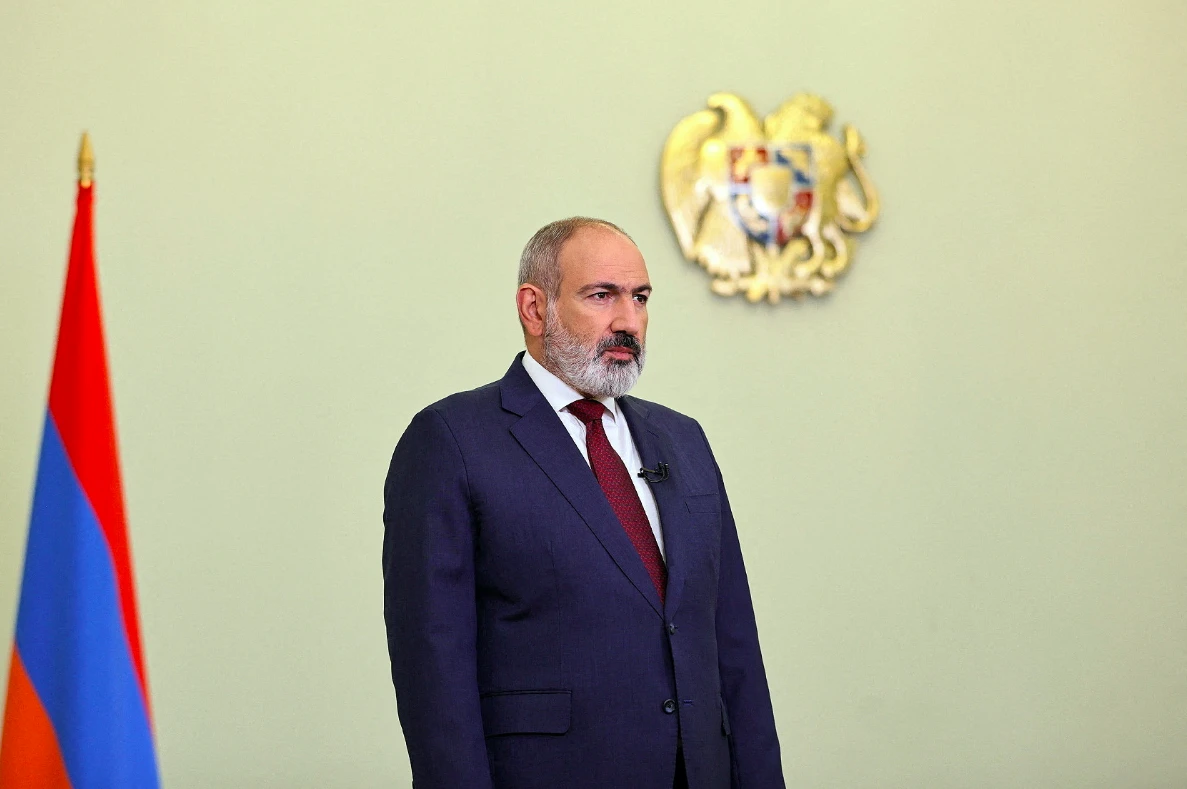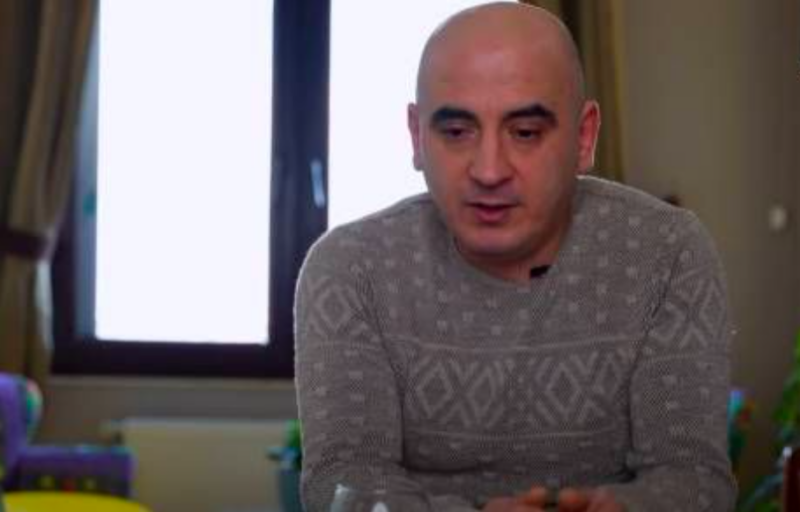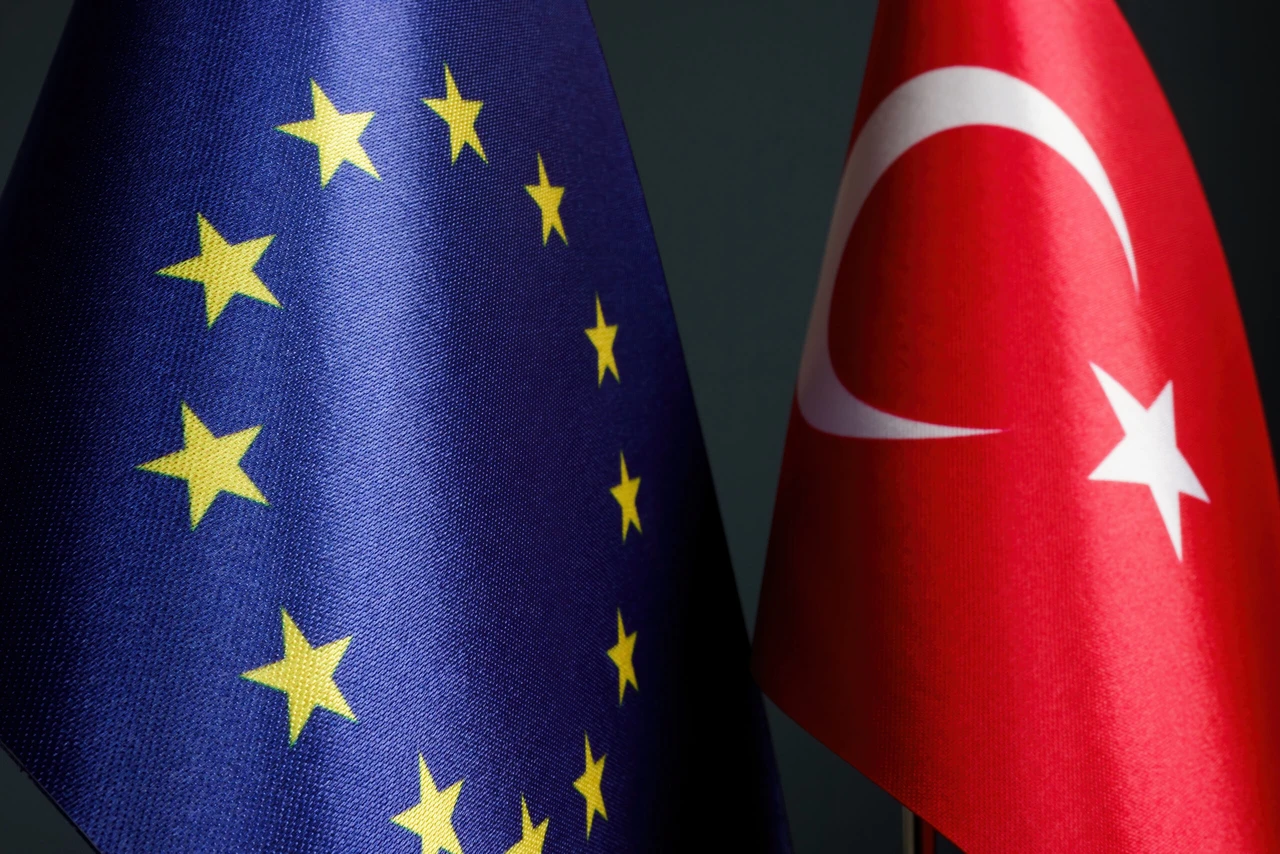Armenia’s PM Pashinian’s vision amid nationalism, economic realities
 Armenian Prime Minister Nikol Pashinyan gives a televised address to citizens on the national independence day, in Yerevan, Armenia, in this picture released September 21, 2023 (Reuters)
Armenian Prime Minister Nikol Pashinyan gives a televised address to citizens on the national independence day, in Yerevan, Armenia, in this picture released September 21, 2023 (Reuters)
Armenian Prime Minister Nikola Pashinyan urged nationalists to stop seeking the restoration of “historic Armenia,” warning that dreams of larger borders may backfire. “If you want (Türkiye’s) Kars, you’ll lose Yerevan,” was the gist of what Pashinyan said regarding radical Armenian nationalists and their expansionist aspirations. How did things get to such extreme states?
Pashinian’s warning to Armenian nationalists
Regrettably, preceding Prime Minister Pashinian’s ascension to power, all governments of the Republic of Armenia propagated a misconstrued notion of Armenia’s identity and territorial boundaries. Their propaganda insisted that Karabakh rightfully belonged to Armenia and fabricated false pseudo-historical claims to lands in northeast modern Türkiye.
Literally, the populace harbored aspirations that Kars, Ani, and Van would one day be assimilated into Armenia. Despite its seemingly absurd nature given the circumstances, such sentiments were indeed prevalent in Armenia.
Pashinian himself acknowledged his past adherence to this ideology until the 44-day war prompted a reassessment of reality versus myth. Gradually, he recognized the incongruity between the purported “historical Armenia” and the actual Armenia, realizing that the pursuit of such “historical” ideals imperiled the modern Republic of Armenia. He thus made a decisive choice.
Pashinian elected to prioritize the Armenia he governed, emphasizing adherence solely to internationally recognized state borders as per the 1991 Alma-Ata Declaration. To illustrate, he replaced the image of Mount Ararat, a symbol of Türkiye, with Aragats, situated within Armenia’s borders.
Henceforth, he resolved to advocate only for values inherent to Armenia and urged forsaking desires that jeopardized both neighboring countries’ territorial integrity and Armenia’s own. This decision aimed to preserve and develop Armenia in accordance with international law.
His statements, such as “if you want Kars, then leave Yerevan and go there,” are emblematic of this stance.
Pashinian’s denial of so-called Armenian genocide
Pashinian articulated another policy priority, termed the state interest of Armenia, focusing on the economy. His economic diversification plans hinge on normalizing relations with Türkiye, a stance he openly champions with hopes for imminent realization.
While the genocide issue remains absent from Armenia’s political agenda, it profoundly resonates within public discourse, influencing sentiments regarding relations with Türkiye, including trade and economic ties. Pashinian endeavors to address this, urging acknowledgment of historical events and contemplation of their ramifications.
Though not outright denying the genocide, he suggests that historical burdens should not impede Armenia’s future trajectory, envisioning economic integration with regional neighbors, notably Türkiye.
Ultimate goal
Pashinian’s actions underscore his commitment to fortifying Armenia’s statehood, sovereignty, and security. His integrity is evident as he navigates formidable opposition, including a predominantly corrupt elite controlling much of the media, attempting to shape negative perceptions of him and his family.
Despite relentless opposition efforts to derail his policies, Pashinian valiantly defends his vision, reflecting a profound dedication to Armenia’s future, even at personal cost. His sincerity is evident, as evidenced by his willingness to risk his family’s safety for Armenia’s independence.
Such principled conduct distinguishes Pashinian’s pursuit of Armenia’s autonomy, inspiring hope for the completion of his mission.
Permanent peace with Azerbaijan
It’s worth recalling a joint statement by Armenian and Azerbaijani leaders’ offices on Dec. 7, 2023, announcing Armenia’s withdrawal of its candidacy to host the COP29 global climate forum in favor of Azerbaijan.
Scheduled for November, this decision hints at potential peace treaty signings, with COP29 serving as a focal point for both countries’ leaders. Anticipating this event, one can only hope for its fruition, with the added aspiration of Pashinian’s participation in Baku during COP29.
Normalization with Türkiye
In his public addresses, Pashinyan subtly signals his intent to swiftly normalize ties with Türkiye.
Recognizing the economic benefits this entails for Armenia, he likely perceives Türkiye as a source of security.
Shedding prevalent misconceptions about Türkiye, Pashinian envisions it as a reliable partner and potential protector for Armenia. Post-normalization, Armenia stands to shed external risks, fostering an environment conducive to growth and security.
Pashinian’s earnest pursuit of this vision holds promise for Armenia’s future, buoyed by the prospect of swift realization. Ishkhan Verdyan, a citizen of Armenia, studied at the State Polytechnic University of Armenia. He actively promotes peace with Azerbaijan and supports the normalization of relations with Türkiye. As a journalist, he contributes articles to Azerbaijani, Russian, and Turkish press on resolving the Armenian-Azerbaijani conflict.
Ishkhan Verdyan, a citizen of Armenia, studied at the State Polytechnic University of Armenia. He actively promotes peace with Azerbaijan and supports the normalization of relations with Türkiye. As a journalist, he contributes articles to Azerbaijani, Russian, and Turkish press on resolving the Armenian-Azerbaijani conflict.



